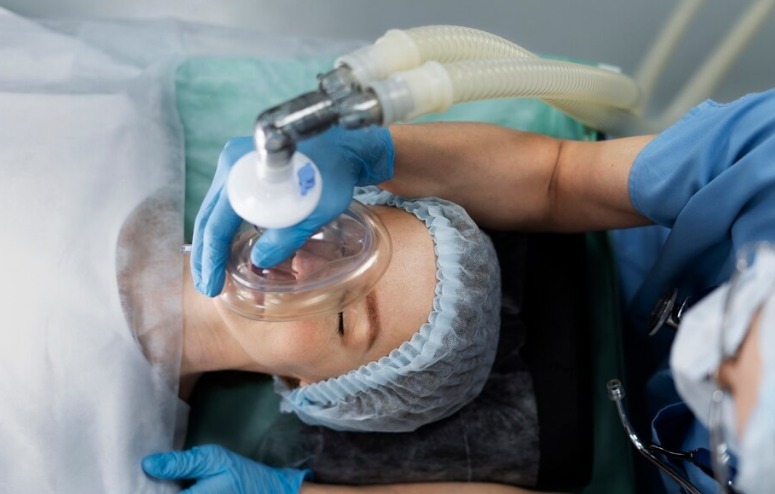In the UK, anesthesiologists are unobtrusively rising to the top of the healthcare pay scale. Although they have long been viewed as the backstage operators during surgical procedures, they have recently become the financial leaders, earning salaries that frequently far outstrip those of their surgical coworkers or even executives in the private sector.
Their earnings trajectory has increased significantly over the last ten years. The starting salary for entry into the field is rather low; foundation trainees make between £32,398 and £37,303 per year. However, the rate of growth is especially quick. As anesthesiologists gain experience, their pay rises to £43,923 by the time they complete specialty training.
Salaries for consultants frequently surpass the £100,000 mark. In actuality, a new consultant should anticipate earning approximately £88,364, while those with ten or more years of experience may see their pay increase to £119,133. The earnings are even more impressive when private work and locum shifts are taken into consideration. Depending on availability and subspecialty, daily rates can range from £1,500 to £2,500.
| Anesthesiologist Salary & Career Information (UK) | |
|---|---|
| Entry-level Salary (Foundation Training) | £32,398 – £37,303 |
| Specialty Training Salary | From £43,923 |
| Consultant Salary (NHS) | £93,666 – £126,281 |
| New Consultant Starting Salary | £88,364 |
| 10–19 Years Experience | Up to £119,133 |
| Private/Locum Daily Rate | £1,500 – £2,500 per day |
| Average Salary (2025, UK-wide) | £72,800 per year |
| Maximum NHS Salary Reported | £140,000 per year |
| Hours Per Week | 41 to 43 hours (often includes evenings and weekends) |
| Reference | Prospects.ac.uk |
Anesthesiologists provide a vital service by constantly managing high-stakes, high-pressure scenarios. During surgery, they are the steady hand regulating life functions, balancing organ stability, unconsciousness, and pain management in real time. The only thing that can match their accuracy is the years of intense training needed to become proficient in the position, which usually takes more than ten years from medical school to consulting.

Their duties have significantly increased outside of operating rooms in recent years. Many anesthesiologists today hold key positions in critical care units, emergency trauma teams, chronic pain clinics, and ventilator support during the COVID-19 pandemic — settings that require both clinical dexterity and emotional fortitude.
Regularly taking on weekend on-call rosters and evening shifts allows many anesthesiologists to receive sizeable bonuses that increase their pay even further. Even though working these hours can be taxing, they are also very rewarding, particularly for those on locum contracts that provide both flexibility and high compensation.
Many anesthesiologists have discovered a financial benefit that challenges established NHS salary structures by choosing to work locum. One day of locum work can earn up to £2,000, according to user-shared information on sites like Reddit’s r/doctorsUK. This is particularly true for last-minute or specialty-specific assignments.
The disparity in compensation is even more pronounced for those who decide to subspecialize in high-risk fields such as pediatric, cardiac, or obstetric anesthesia. Because these specialties require complete concentration and exacting technique, hospitals are becoming more and more prepared to pay top-tier professionals competitively.
Notably, demand from the private sector has also increased. Anesthesiologists can make more money than some surgeons in hospitals that treat wealthy patients, including famous patients recuperating from difficult surgeries. This is especially true in fast-paced specialties like neuroanesthesia or bariatrics. Despite being out of the public eye, these doctors’ incomes and knowledge are widely recognized in the field.
Thanks in large part to data transparency on websites like Glassdoor and PayScale, the public’s perception of anesthesiologists has greatly improved in recent years. The mystery surrounding these experts is being replaced by recognition and admiration as patients gain more knowledge.
Rising wages have generated discussion in the context of current healthcare debates. Six-figure pay in publicly funded systems, according to some critics, is unsustainable. Others argue that, particularly as staffing shortages and surgical backlogs worsen, the workload, stress, and expertise anesthesiologists carry more than justify the compensation.
These financial realities are unavoidable for young physicians and medical students preparing for their careers. One of the most competitive postgraduate specialties today is anesthesiology, which offers both prestige and exceptionally high pay. The balance of talent within the UK healthcare workforce may be gradually altered by this change in career interests.
From medical school to consulting, anesthesiologists are demonstrating their exceptional skill and high compensation at every level. Their worth stems from the delicate, frequently invisible art of keeping patients alive during life-altering procedures; it goes beyond simple economic considerations.
